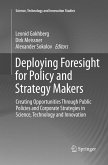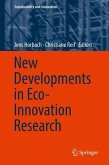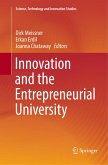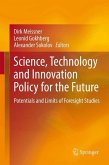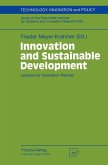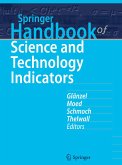Decision-makers at all levels are being confronted with novel complexities and uncertainties and face long-term challenges which require foresight about long-term future prospects, assumptions, and strategies. This book explores how foresight studies can be systematically undertaken and used in this context. It explicates why and how methods like horizon scanning, scenario planning, and roadmapping should be applied when dealing with high levels of uncertainty. The scope of the book moves beyond "narrow" technology foresight, towards addressing systemic interrelations between social, technological, economic, environmental, and political systems. Applications of foresight tools to such fields as energy, cities, health, transportation, education, and sustainability are considered as well as enabling technologies including nano-, bio-, and information technologies and cognitive sciences. The approaches will be illustrated with specific actual cases.
Es gelten unsere Allgemeinen Geschäftsbedingungen: www.buecher.de/agb
Impressum
www.buecher.de ist ein Internetauftritt der buecher.de internetstores GmbH
Geschäftsführung: Monica Sawhney | Roland Kölbl | Günter Hilger
Sitz der Gesellschaft: Batheyer Straße 115 - 117, 58099 Hagen
Postanschrift: Bürgermeister-Wegele-Str. 12, 86167 Augsburg
Amtsgericht Hagen HRB 13257
Steuernummer: 321/5800/1497
USt-IdNr: DE450055826
Bitte wählen Sie Ihr Anliegen aus.
Rechnungen
Retourenschein anfordern
Bestellstatus
Storno


